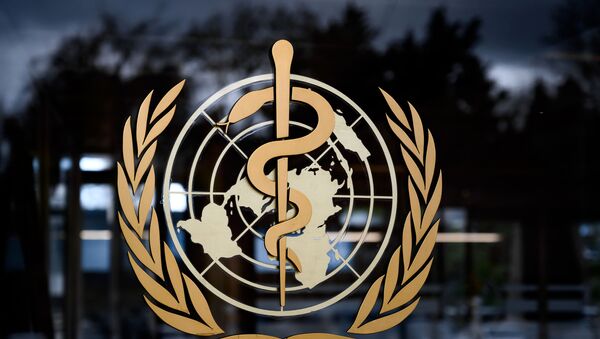A scientific brief on “‘Immunity passports’ in the context of COVID-19” was published by the WHO on Friday which pushed back against the idea that individuals with antibodies to SARS-CoV-2 - the virus that causes COVID-19 - could be granted a type of “immunity passport” or “risk-free certificate” by their governments, allowing them to travel or go back to work.
“As of 24 April 2020, no study has evaluated whether the presence of antibodies to SARS-CoV-2 confers immunity to subsequent infection by this virus in humans,” noted the WHO.
However, the agency’s social media team did not provide this context in a since-deleted tweet which simply stated, “There is currently no evidence that people who have recovered from [COVID-19] and have antibodies are protected from a second infection.” Though this statement is correct, it’s to be expected that there is not yet verified evidence of such an immunity to the novel coronavirus, as it is only a few months old.
The WHO highlighted the infamous tweet in a follow-up thread which better explained its statement on immunity.
To avoid further confusion, we are taking down the previous thread on the #COVID19 "immunity passport", but you can still see it here👇 pic.twitter.com/bLx3bRDaTB
— World Health Organization (WHO) (@WHO) April 25, 2020
Despite the WHO’s attempt to clear up the confusion on the following day, outlets had already picked up and disseminated the tweet alongside ominous headlines, like Bloomberg News’ "WHO Warns You May Catch Coronavirus More Than Once.”
Social media users also admonished the agency in the hours the tweet remained up.
“WHO needs to improve its communication on this. When they say ‘no evidence’ they mean something like ‘no definitive proof, yet,’” statistician Nate Silver said in an April 25 Twitter post quoting the tweet in question. “But the average person is going to read it as ‘there’s no immunity to coronavirus’, which is likely false and not a good summation of the evidence.”
Twitter user Dylan Morris went a step further in chiding the WHO, arguing that the initial statement was “false” and “irresponsible.”
This is a false, irresponsible statement by the WHO, which will panic people in the name of not raising false hope. I will reply to this thread with evidence that infection confers at least temporary immunity https://t.co/4x33pZ3KSW
— Dylan Morris (isopod/facemask fan account) (@dylanhmorris) April 25, 2020
The WHO later thanked a number of individuals, including Silver and Morris, for their “constructive input.”
“We expect that most people who are infected with [COVID-19] will develop an antibody response that will provide some level of protection,” the WHO said on Saturday via Twitter.
“What we don't yet know is the level of protection or how long it will last. We are working with scientists around the world to better understand the body's response to [COVID-19] infection. So far, no studies have answered these important questions.”




